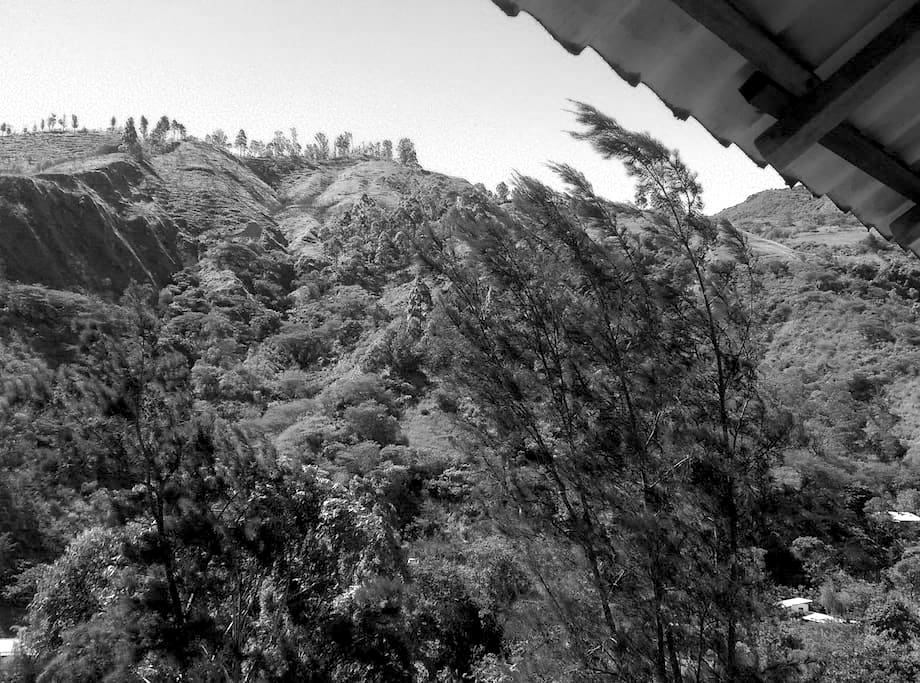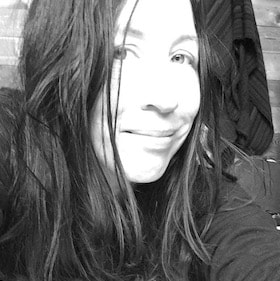 Lately I've found myself nursing a deep well of grief as I daily witness how both people and the planet suffer from rampant materialism. Since I’ve settled into a lifestyle that includes little in the way of accumulation, I can feel in my gut how unnecessary this suffering is, but something has silenced me from talking about it. I’ve decided to risk sounding preachy, rather than let this grief stay stuck in my throat. In the last years, I’ve been slowly removing myself from the vice-grip of consumerism — not as an idea, but as a lifeway. I gave away most of what I owned, and have lived simply in parts of the world that aren’t completely under the boot of consumer culture. As a new orientation to life emerges in me, it has become clear that using less isn’t a punishment. It isn’t a loss. In fact, I feel richer and more creative than ever. My conditioned consumerism told me that I would feel deprived, but now I see this is only an illusion of the trance that I had been under since watching my first TV commercials during Saturday morning cartoons. It’s strange I never noticed before: any sense of abundance based on personal accumulation makes me hungry. My sense of abundance comes from a far deeper place now that I’ve left the gilded cage of the American trance for the wild forests of the soul.  I have been staying for nearly six months in a small adobe cabana in the Andes mountains, just outside of a village in Southern Ecuador. The walls of my cabin are made from a clay that comes from this mountain. I eat food grown locally by small farmers, eat bread baked in my neighbor’s oven, drink clean water that comes from the river thrumming over boulders in the valley below, and other than my use of internet and laptop, enjoy a lifestyle surrounded by forest, animals and neighbors, pretty much the same as people here have lived for centuries. For the first time, I am living in a way that makes sense to my soul — a way of life that would be illegal in my home country, too simple to meet the building codes and health regulations in the United States. Whenever I read a discussion on lifestyle changes that might help the environment, I notice how often people refer to the option of “returning to the way our ancestors lived” as some kind of curse. All I can say is, they must have never tried it. My ancestors came from forests and villages in France and Germany, and tribal lands in North America. I’ve largely lived a “modern” life in urban or semi-urban areas. Now, I have gotten a small, lived taste of their way of life, and have found a lot to recommend it. Of course, I’m not suggesting this level of simplicity for everyone — we all need to find our own balance. Before the internet, I don’t think I could have lived this way, as it would have felt too isolated from the stimulating world of ideas and cultural exchange that until recently, was largely reserved for urban people. No doubt, in the past, some of our best ideas have come from urban environments, but let’s be honest: so have our worst, and I’m beginning to understand why. Now that I spend the bulk of my time in wild places, when I go into urban areas, I notice that human culture feels too big there; it takes up too much psychic space, out of proportion to the truth of how things really exist. Human culture is only a tiny part of a vast and complex ecosystem, consciousness and universe, and a modern urban life dominated by the human mind can easily distort our thinking. If we are always in an environment where nature is confined to potted plants and carefully pruned, decorative trees, we lose the sense of perspective that comes from living closer to the elements, closer to the awe of the wild. Given the current imbalance in the planetary ecosystem, it feels downright dangerous to have many of the influential decision-makers confining themselves largely to purely human habitats, and when the general population does the same, there is no one left to notice that something is amiss. Maybe that’s why people have such trouble resolving the contradictions between their values and their conditioning, and caring for the natural world is often reduced to buying eco-chic clothing and putting the waste from excessive consumption into the recycling.  Years ago, I witnessed an exchange between a young environmental activist and a Buddhist teacher named Cealo. The activist told him that she was feeling despair, sure we wouldn’t be able to save the earth. Cealo replied, “You don’t have to save the earth. You just have to love it. When you love something, you take care of it.” I often reflect on Cealo’s words, so I was surprised to find myself going numb as I settled into living in this particular forest, getting to know these particular trees. It took me a while to figure out why: I was afraid to love the trees as much as I do — afraid it would split me open, turn my mouth into a wound. We lose forests and forests, on top of those already lost, and if I let myself feel that love, how deep and vast and tender is my love for trees, then I will let out a wail so piercing that the agony will puncture the river valley and every heart in it. I think I’m starting to get that these times require a warrior-level commitment to life, strong enough to risk the wail and let that love be felt, even as I look through the trees toward the deforested mountainside and remember that I am living in the lucky little survivor forest, somehow spared. In a larger sense, this forest is already gone, and now that I have taken a step toward that warrior commitment to life, every day I spend here is full of a heartbroken appreciation that at least for today, the forest is still here, teaching me — the way it did one day when I was feeling particularly dark, not liking what I was reading in the news. I was seeing the world as broken, the confusion too deep and stuck. Then I went outside and saw perched on a leaf a butterfly with a torn wing. It looked as though the wing had been bitten and the butterfly had escaped. I had never seen a wounded butterfly before. They had always represented successful transformation, enlightenment, a caterpillar’s fairy-tale ending. At first I felt sad, as it seemed to confirm my judgment on the state of the world, but then the butterfly fluttered its wings and took flight, unfazed by the broken wing.
Comments are closed.
|
|
FOR WRITING AS A SPIRITUAL PRACTICE:
copyright 2019 by jane brunette



